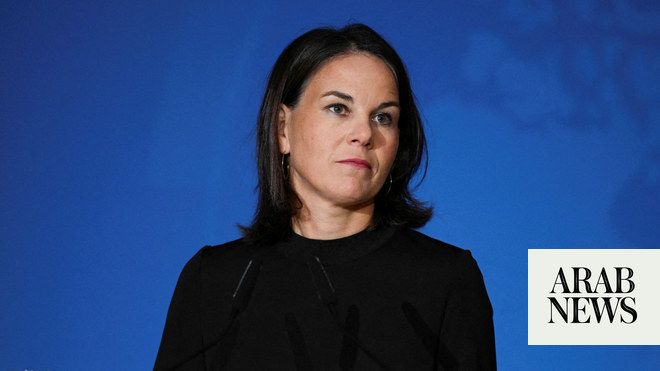
Last week, I attended the Research and Innovation Summit in Amman, a gathering of almost 1,000 students with experts from around the world, organized by the PHI Science Institute, a dynamic Jordanian organization. Meanwhile, last month, the Global Innovation Index 2018 — an annual ranking and analysis of innovation efforts worldwide by the World Intellectual Property Organization, Cornell University, INSEAD (the famed graduate business school with campuses in Europe and Asia) and several other institutions — was released.
Indeed, these institutions, which work in higher education, business and intellectual property, have teamed up to define and measure innovation activity because there is general agreement that innovation and wealth go hand-in-hand in today’s economies. Innovation leads to higher efficiency and productivity, which increases economic output, which translates into revenues, which then fuels research and development, which leads to more innovation, and so on.
The GII identifies factors that promote innovation and uses 80 indicators to rank 126 countries accordingly. The main factors that indicate innovation capability are: Human capital and research, infrastructure, quality of universities, creative outputs, companies’ research and development budgets, the activity of technology-intensive sectors, intellectual property and knowledge policies, and others.
How did Arab countries fare in the latest report? First, if you do not follow the GII (this is its eighth report), you might be surprised to hear that Switzerland is No. 1 for the eighth year in a row. The runners-up are: Netherlands, Sweden, the UK, Singapore, the US, Finland, Denmark, Germany, and Ireland. Clearly, a country doesn’t have to be big or powerful to be a top innovator — an important lesson to keep in mind.
Equally interesting was China bursting into the top 20 (at 17), thanks to its government’s policies promoting research and novel projects. India has moved from 60th to 57th. Elsewhere in Asia, we find Malaysia (35th), Thailand (44th), and Vietnam (45th) continuing to improve.
The GII has labeled countries that perform at least 10 percent above their economic peers as “innovation achievers.” Africa has seven nations among this group, more than any other region of the world, in Kenya, Malawi, Mozambique, Rwanda, Madagascar, South Africa and Tunisia, the latter being the only Arab country to gain the title.
Jordan competition highlights talent for innovation in the Arab world, but we need to see more such efforts if states are to have more of an impact on global stage.
Nidhal Guessoum
In the Middle East and North Africa, Israel by far surpasses all other countries, ranking 11th worldwide, while the UAE leads the Arab world in 38th. Other Arab countries rank as follows: Qatar at 51, Kuwait at 60, Saudi Arabia at 61, Tunisia at 66, Oman at 69, Bahrain at 72, Morocco at 76, Jordan at 79, Lebanon at 90, Egypt at 95, Algeria at 110, and Yemen at 126 (last of all). Most of the Arab states perform well below their wealth and potential capacities.
What makes states in the region perform well in terms of innovation? Israel leads in the number of researchers (in general and in the private sector), R&D business funding, exports of information and communications technology services, and Wikipedia edits. The UAE performs very well in the number of incoming tertiary students, university research talent, R&D business funding, and general infrastructure.
Back to Jordan now, where I saw highly encouraging innovation and knowledge-boosting activities that will undoubtedly soon raise the country — and perhaps overflow into the rest of the Arab world.
For the last three years, the PHI Science Institute has run an innovative projects competition for students, from high school and college. This year was most impressive. The 12 finalists were presented at the conference, with each team (sometimes a single student) presenting their concepts to experts and participants through short videos, stage presentations and live demonstrations. The vote (by both judges and participants) designated three winning teams, who each received $4,500 to support their endeavors to turn their projects into real, marketable products.
The innovative ideas that were presented were quite remarkable. I will mention only a few: An 18-year-old student single-handedly developed a project of an “artificial tree” that could absorb pollutants in cities, running on solar energy while providing electric charge to various devices (from smartphones to electric cars); a small robot cleaner that wipes dust from solar panels, thereby decreasing the energy loss from 35 percent to 1 percent; a technique to decrease the time it takes to determine the blood type and compatibility between a patient or injured person and a donor from 30 to 60 minutes to just a few minutes; an electronic mini-pharmacy that forces chronic medication patients to take their pills, with a visual and sound reminder stopping only when the pill has been taken from the box, etc.
The collection of projects that was presented was quite stunning; but more impressive still was the quality of the participants, in terms of both knowledge and will.
There are quite certainly other such initiatives in the Arab world, but they must be few and not widely known. But such research and innovation initiatives and projects are numerous around the world. That is why many countries, including in Asia and Africa, are climbing the GII ladder. I hope to see more such efforts around the Arab world in the future.
Nidhal Guessoum is a professor of physics and astronomy at the American University of Sharjah, UAE. Twitter: @NidhalGuessoum
Disclaimer: Views expressed by writers in this section are their own and do not necessarily reflect Arab News" point-of-view












